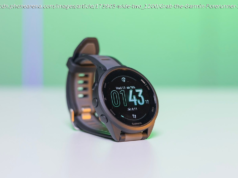Smart home devices are becoming increasingly common in our living rooms, kitchens, and front porches. Lets take a look at their potential vulnerabilities.
In this day and age just about everything we own has a digital footprint, which is incredibly helpful in many ways. We can access information in the blink of an eye and there’s less of a need to clutter our wallets and purses with loyalty rewards, insurance, membership, or — if you’re a real digital purist — credit cards. After all, apps like Google Wallet can carry all of that for you. Not to mention the incredible number of pictures you can keep to be shown off with the click of a button rather than needing to wait until somebody visits your home. So many smart gadgets on the market turn our simple homes into technological marvels where convenience is prioritized.
Say a magic phrase and the lights or TV will turn on and off. You can take a gander at who is at the front door without even being home. However, that convenience comes with its own risks. While you might not care if somebody hacks your smart refrigerator because the worst they can do is adjust your grocery list, it’s concerning if a bad actor gains access to a smart baby monitor or video cameras. While the world might be filled with a majority of decent and goodwilled people, there are always those who don’t have the best interests of their neighbor at heart.
Bottom line, yes, smart home devices like a Ring Battery Doorbell Pro or a Vosker VKX security system can be accessed by outside parties with enough knowhow or the correct set of credentials, such as compromised login information. Luckily, there are plenty of precautions you can take yourself to maintain the integrity of such gadgets and give you some peace of mind.Wi-Fi security is paramount
The worst thing any smart home device owner can do is neglect the security of their Wi-Fi router. The default password for routers is typically generic and it’s not difficult for hackers to find passwords supplied by manufacturers online. As soon as you connect a new router and complete the setup process, change the password to something stronger. Don’t use the same password you’re using for Instagram on any other device. Security starts at the router, so its uniqueness is paramount. Additionally, create a new service set identifier (SSID). This is the name of your Wi-Fi network. It’s harder for bad actors to identify your router when it’s not a generic SSID.






